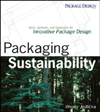CJ Biomaterials, Inc., a division of South Korea-based CJ CheilJedang and leading producer of polyhydroxyalkanoate (PHA), and NatureWorks, an advanced materials company that is the world’s leading producer of polylactic acid (PLA), have signed a Master Collaboration Agreement (MCA) that calls for the two organizations to collaborate on the development of sustainable materials solutions based on CJ Biomaterials’ PHACT™ Biodegradable Polymers and NatureWorks’ Ingeo™ biopolymers. The two companies will develop high-performance biopolymer solutions that will replace fossil-fuel based plastics in applications ranging from compostable food packaging and food serviceware to personal care, films, and other end products.
The initial focus of this joint agreement will be to develop biobased solutions that create new performance attributes for compostable rigid and flexible food packaging and food serviceware. The new solutions developed will also aim to speed up biodegradation to introduce more “after-use” options consistent with a circular economy model. The focus on compostable food packaging and serviceware will create more solutions for keeping methane-generating food scraps out of landfills, which are the third largest source of methane emissions globally, according to World Bank. Using compostable food packaging and serviceware, we can divert more food scraps to composting where they become part of a nutrient-rich, soil amendment that improves soil health through increased biodiversity and sequestered carbon content.
CJ Biomaterials and NatureWorks plan to expand their relationship beyond cooperative product development for packaging to create new applications in the films and nonwoven markets. For these additional applications, the two companies will enter into strategic supply agreements to support development efforts.
“We are excited to build on our strong relationship with NatureWorks to tackle the challenge of plastic waste,” says Seung-Jin Lee, Head of Biomaterials business from CJ CheilJedang. “Plastic pollution is a major global concern, and to successfully address this problem, it is critical to introduce new solutions that will have a real impact by improving the biodegradability and compostability of plastic. Using its Ingeo PLA technology, NatureWorks has served as a leader in developing sustainable solutions for more than 30 years. By combining our PHACT amorphous PHA [aPHA] biopolymers with their Ingeo PLA biopolymers, we can deliver advanced solutions that improve the biodegradability and compostability of plastic in almost limitless applications.”
“We feel strongly that the next generation of sustainable materials needs to begin with renewable, biobased feedstocks, have a wide range of tailorable performance attributes, and be designed for after-use scenarios from compostability to chemical recycling. These principles are inherent in both CJ’s PHACT PHA and our Ingeo PLA, and we have witnessed very positive early results when incorporating these two industry-leading biomaterials. This collaboration between our two organizations is going to lead to the development of exciting, industry-advancing technologies,” said NatureWorks CEO, Rich Altice.
NatureWorks is a pioneer in the development of bio-based materials that have a small carbon footprint and enable new after-use options with its Ingeo technology. As a company, it has developed many of the leading high-volume applications for PLA. In recent years, Ingeo has experienced significant growth as a bio-based material in a broad range of finished products. Due to its unique functionality, it has been used to replace petrochemical-based plastics with 100% renewable, biobased content and to enable more after-use options which include compostability, chemical recycling, and mechanical recycling.
CJ Biomaterials is a business unit of CJ BIO part of CJ CheilJedang. Earlier this year, the company announced commercial-scale production of PHA following the inauguration of its production facility in Pasuruan, Indonesia. Today, CJ Biomaterials is the only company in the world producing aPHA, including the first product under its new PHACT brand, named PHACT A1000P. Amorphous PHA is a softer, more rubbery version of PHA that offers fundamentally different performance characteristics than crystalline or semi-crystalline forms of PHA. It is certified biodegradable under industrial compost, soil (ambient), and marine environments. Modifying PLA with amorphous PHA leads to improvements in mechanical properties, such as toughness, and ductility, while maintaining clarity. It also allows adjustment in the biodegradability of PLA and could potentially lead to a home compostable product.









